Free speech and anti-war activist Sue Trupin found her niche caring for AIDS patients and supporting black grandmothers
Sue Trupin spent more than a decade living in a countercultural enclave in Canyon, a community in rural Contra Costa County. She had gardens, goats, and chickens, and harvested vegetables. She harvested walnuts and fetched food from the bins at the back of grocery stores.
“We lived on very little; it was part of that `back to land’ hippie culture,” she said. The lifestyle suited her, but after 14 years, Trupin’s marriage ended. She had dropped out of college years earlier, and when she took stock, she realized that she had two sons to support and no marketable skills.
She returned to school and became a registered nurse, pursuing that career for more than four decades, a period that encompassed the AIDS and crack cocaine epidemics that devastated the gay and Black communities of San Francisco.
Her work with AIDS patients and black grandmothers acting as parents in place of their addicted children marked a life dedicated to social service and progressive activism.
Not slowing down
Now 81, she’s still active politically as befits a veteran of the Free Speech Movement and opposition to the Vietnam War.
“Give me a project that I can believe in, and I will drive it like a bull,” she said.
As a recent graduate of a private Boston high school, Trupin arrived in California in 1962, ready to begin studies at the University of California, Berkeley, at a time of political and social ferment.
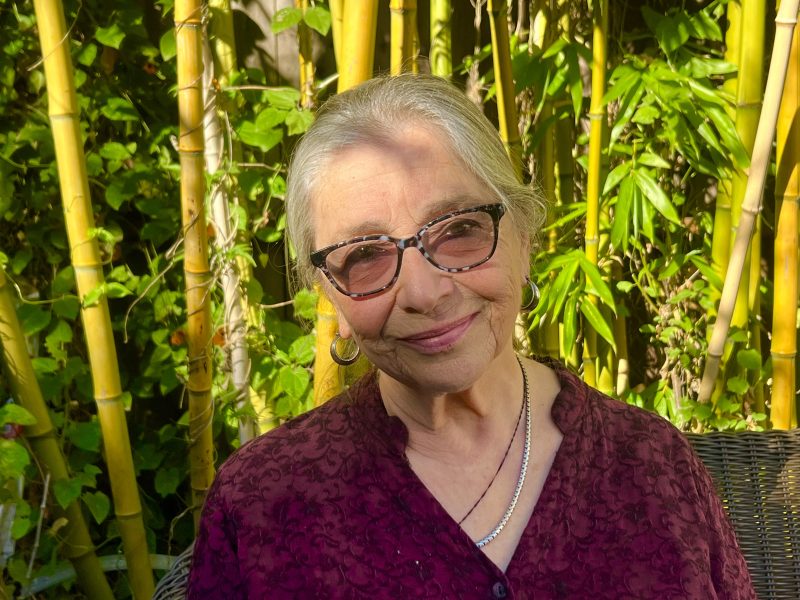
She became active in Berkeley’s Free Speech Movement. As she protested the Vietnam War, Trupin was arrested, along with 600 others. Pictures of her being dragged up a flight of steps at Bancroft Hall ran in several newspapers.
Trupin said she dropped out of Berkeley after four semesters spent studying philosophy and anthropology.
She moved to San Francisco and married in 1966. A few years later, she and her first husband, Bob Trupin, moved to Canyon, where she raised their children.
Life in a village
“It was more like a village, possibly a hippie enclave, she said. “I mostly took care of my young boys. I loved living in nature and being in a close-knit community, as crazy as it was.”
The village included many skilled artists and craftspeople; Trupin learned to blow glass. The family lived on about $400 a month by scavenging food from dumpsters, buying at secondhand stores, and growing their own food, she said.
Trupin and her husband separated after almost a decade in Canyon. Faced with life as a single mother, she needed to find a way to support herself and her boys. She was interested in biology and done well when she studied it, so nursing seemed like “a good fit.”
She enrolled at City College of San Francisco for $13 a unit and attended Santa Rosa Community College for a year. She supported her family with work as a tutor at City College and the settlement from her divorce.
She had a few nursing positions before she landed at San Francisco General Hospital, where she stayed for about 40 years.
Finding her niche
“I had found my niche,” she said. She was the charge nurse in the infectious disease clinic of San Francisco General Hospital for 10 years at the height of the AIDS crisis. “It was a couple of years before there was a proper AIDS clinic. At first, it felt like a big mystery, and then it wasn’t. It felt like being in war.”
It was heartbreaking work. The daily losses piled up — and soon hit close to home. Trupin’s son, Gabriel Wildwood Trupin, was diagnosed with AIDS in 1993.
He had had a promising career as a dancer, performing in Madonna’s 1990 Blonde Ambition Tour and in concert with Vanessa Williams, Debbie Allen, Queen Latifah, and others. He also danced in films, such as “What’s Love Got to Do with It,” “Truth or Dare,” and “Sister Act 2.”
He was 26 when he died in 1995. “This is my life’s greatest sorrow,” Trupin said.
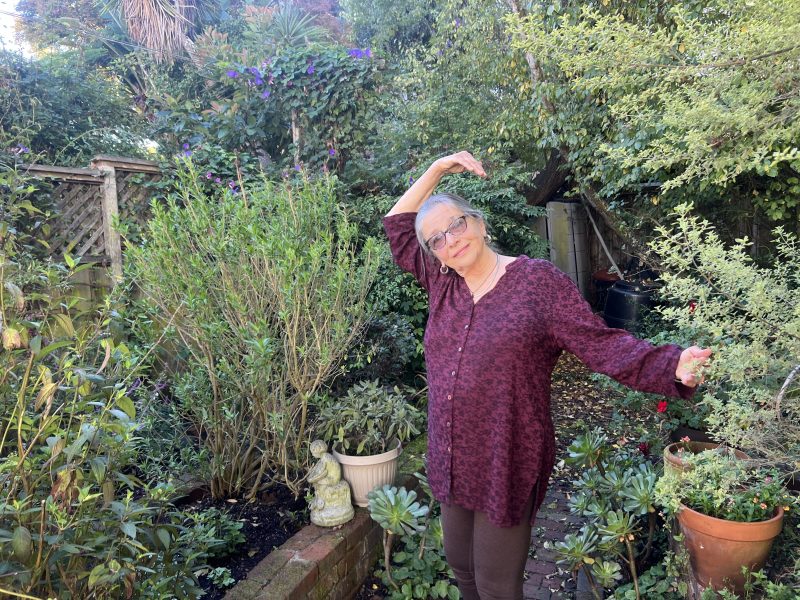
Trupin’s nursing career also spanned the crack cocaine epidemic of 1986. She and her colleague, Dr. Doriane Miller, facilitated two support groups for older black grandmothers.
“These women were my patients,” Trupin said. “They abruptly declined medically, financially, and emotionally due to the burden of raising grandkids who had been abandoned by their addicted parents. They were taking care of these children to keep them out of the foster care system,” Trupin said.
Trupin co-founded a mutual support group for them, called “Grandparents Who Care.” The women shared their struggles with a State Assembly Committee. Trupin in 1987 traveled to Washington, D.C. on their behalf to testify before Congress for the Children’s Youth and Families committee.
“Our biggest achievement was getting legislators in Sacramento to change laws around foster care so that family members caring for these kids could get reimbursed in the same way foster parents did,” she said.
This grassroots program later became a model for other communities across the country, and ultimately became the Kinship Services Edgewood Children’s Center. “This is the most important work I ever did,” Trupin said.
Trupin was born in Malden, Massachusetts, her only sibling a brother. Her father, a lithographer, started his own business when she was 10. Her mother was a homemaker who also kept the books for the family business.
Strong believers in education, her parents pushed her to attend the Boston private school. She resisted the idea at first but later came to embrace it “as a vibrant intellectual experience.” Her father paid the tuition in part by printing the school’s stationery and brochure.
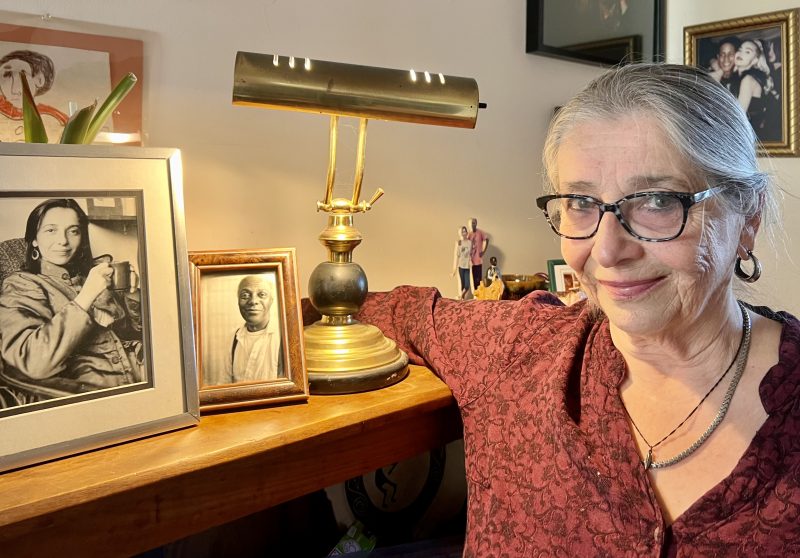
In 1980, Trupin married her second husband, Eddie Marshall, blending their families to raise five boys in the Noe Valley home where Trupin still lives.
Marshall was an accomplished drummer known throughout the jazz world, having played with notable headliners such as Stan Getz, Bobby McFerrin, and Toshiko Akiyoshi. He taught music throughout the city, including San Francisco’s after-school programs.
Invitation to jazz
In 1984, Trurpin and Marshall co-founded Jazz Camp West, which now thrives as “Living Jazz,” a program for educating students and artists of all ages and abilities about music.
Marshall died in 2011. For the next few years, she devoted herself to community issues, including food insecurity in Bayview Hunters Point. She worked with Literacy for Environmental Justice and Hunters Point Family, working in its garden, doing promotions, selling produce at the weekly market, and teaching Bayview teens small-scale farming.
In 2018, she began working as a private nurse advocate for a small for-profit organization. She works about 10 hours a week collaborating with client families and other providers to ensure quality of care and she handles everything from ear-wax cleaning to discussions about death and dying. “I love it,” she said.
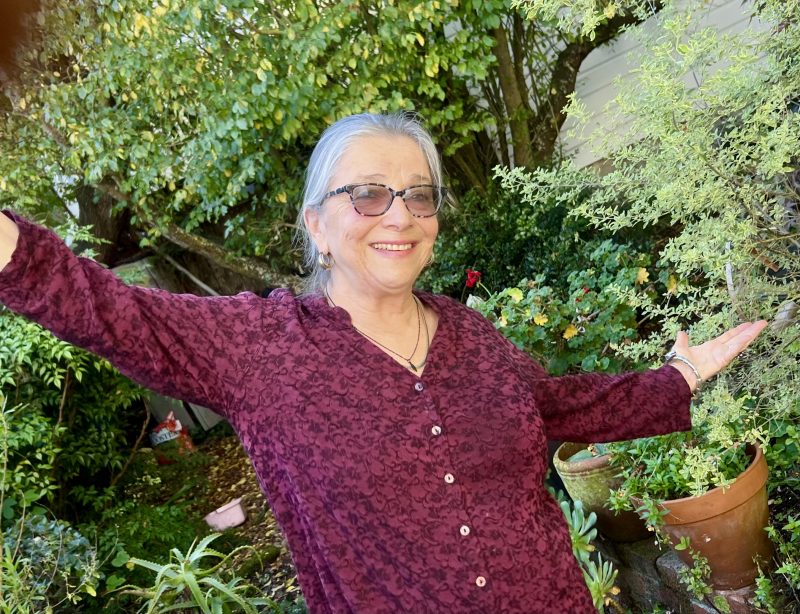
She also stays active politically, volunteering with Seed the Vote, a grassroots organization working to defeat Trumpism. “I knocked on doors during the mid-term election in Phoenix and the general election in 2024 in Reno.” She also campaigned for former President Obama.
And just for herself— is there any time left? “I see a lot of a core group of close friends,” she said. She also makes time for gardening and to study Cuban percussion and learn Spanish.
But her most encompassing hobby is “birding,” which she has pursued for decades. She is a regular visitor to Heron’s Head Park, a wetland habitat on the city’s eastern shore. Armed with binoculars and bird books, she identifies species and observes their behavior.
Two or three times a year, she drives to the Sacramento Delta for birding outings.
“Birding has been one of the most sustaining passions of my life. The migration of waterfowl is a miracle. The sight and sounds of hundreds of thousands of geese and ducks, the prehistoric cranes, raptors – this experience never disappoints.”
You can reach author Myra Krieger here: myrakrieger@sfseniorbeat.com


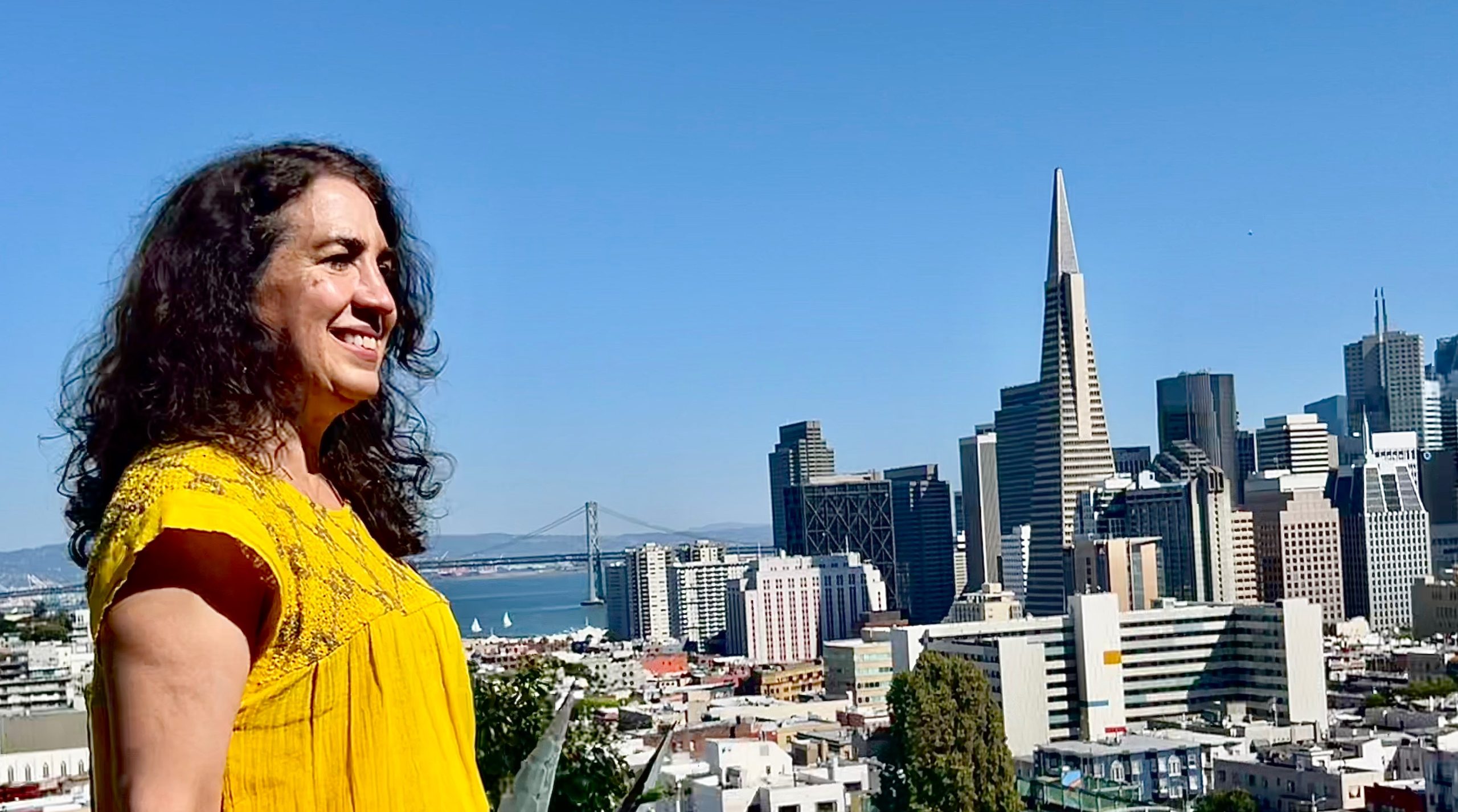
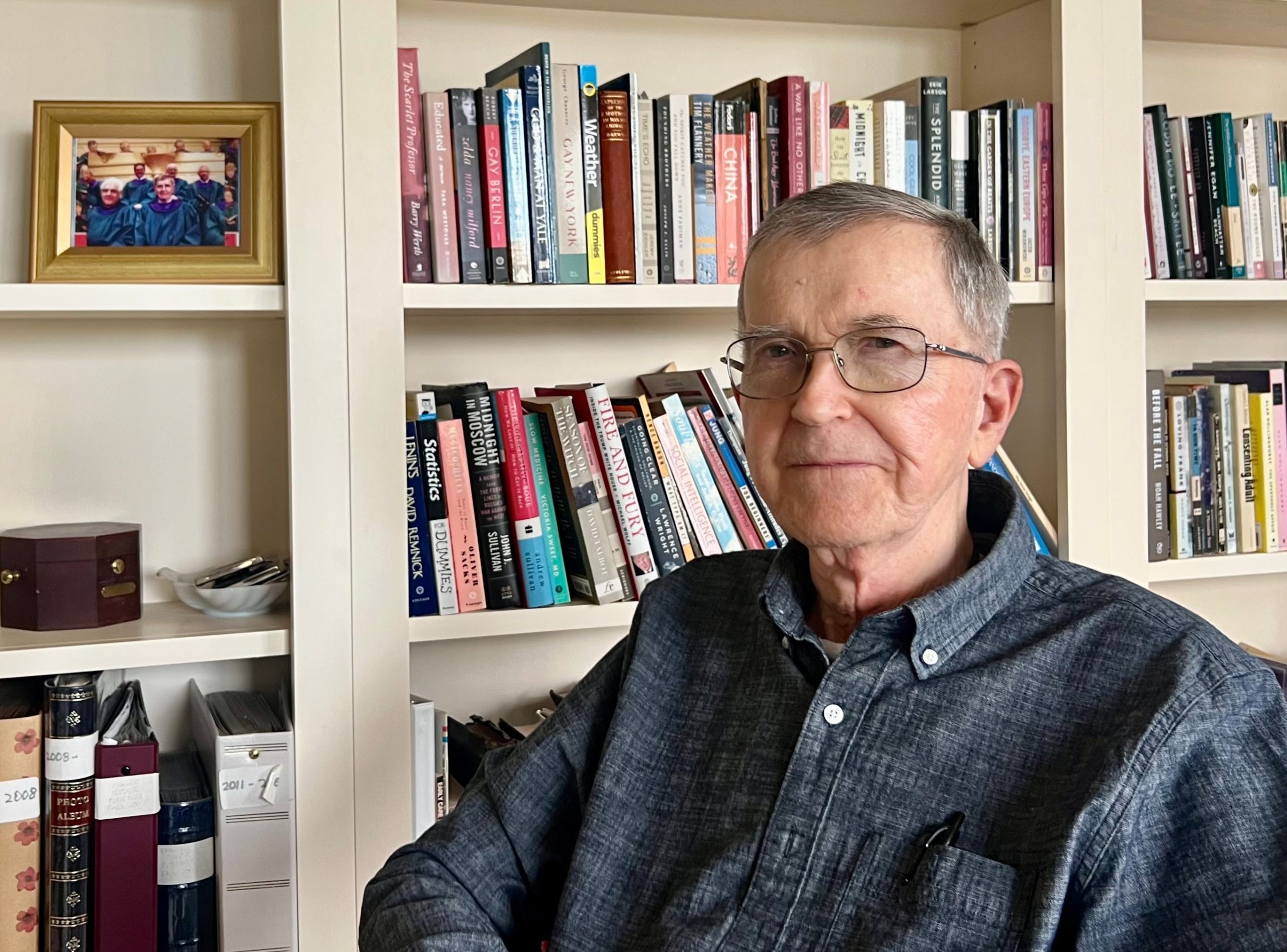
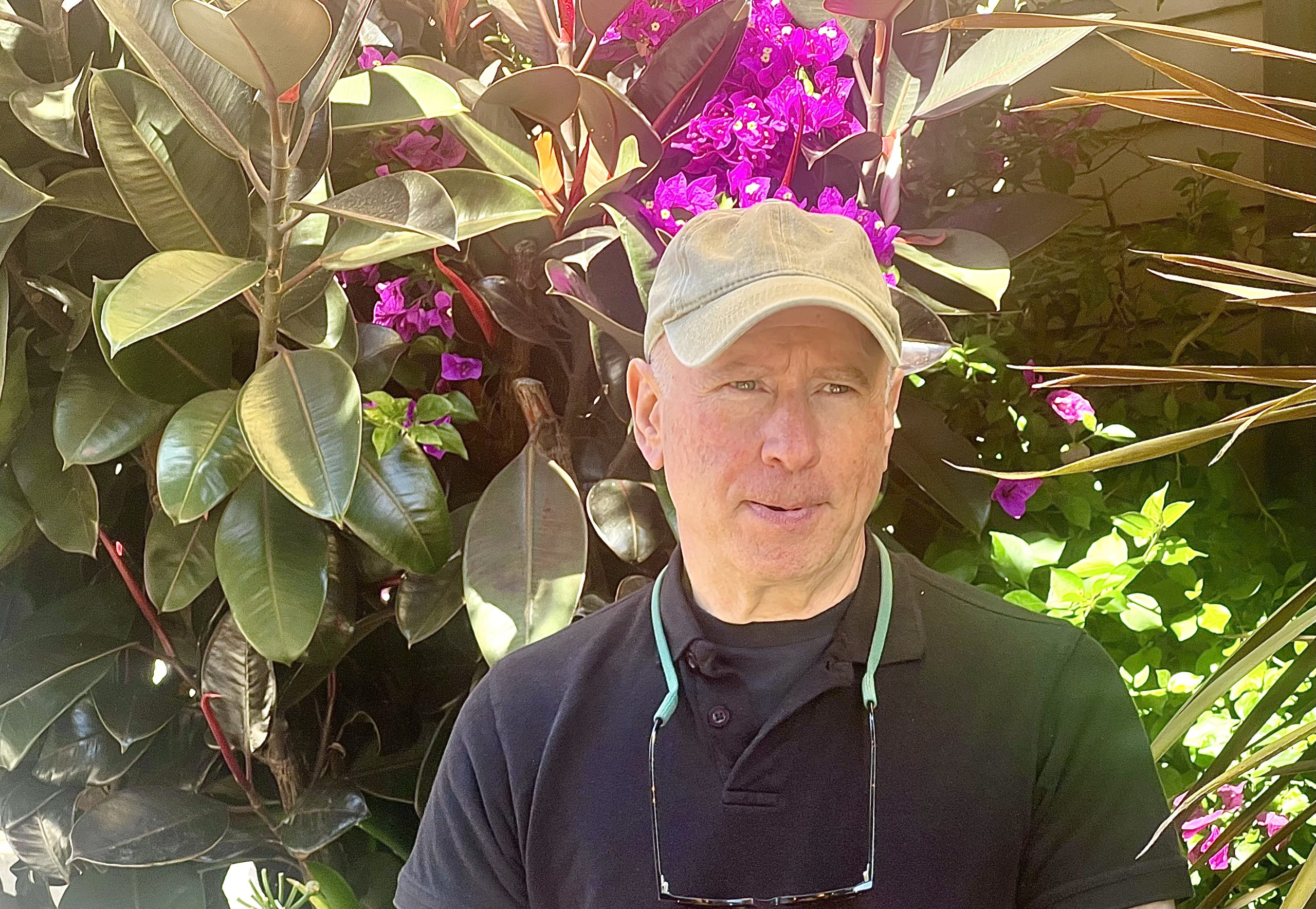

Melaniea Grossman
Wow! What a wonderful story of a life well lived. Very fascinating but also weell written and inspiring!